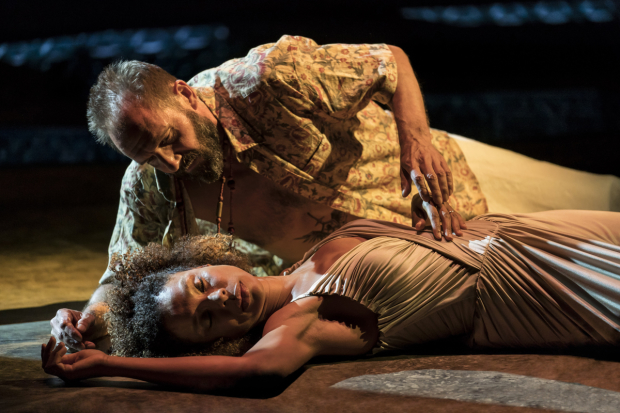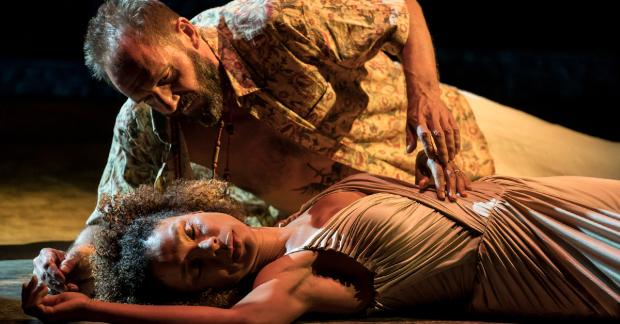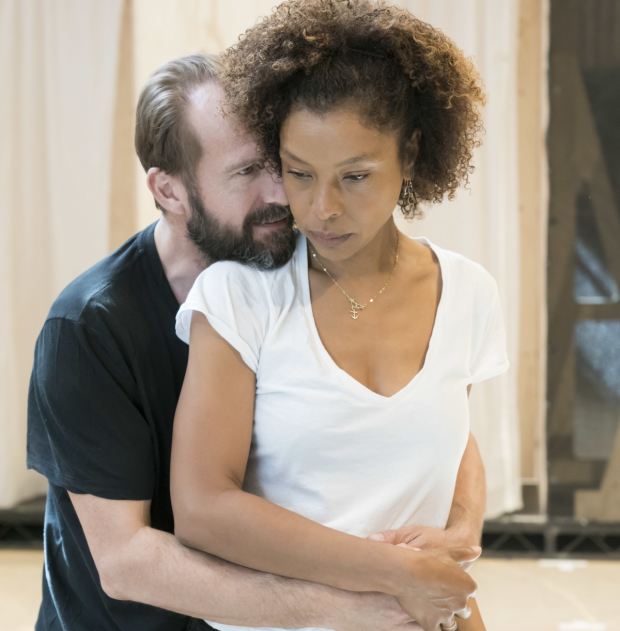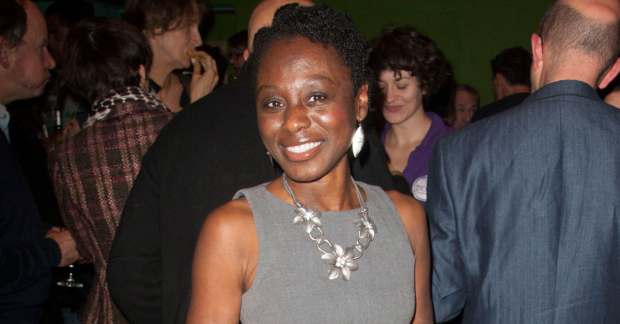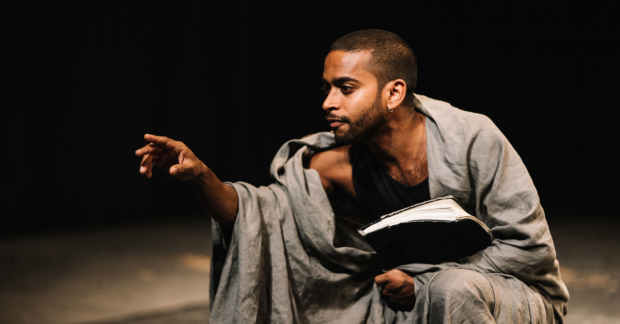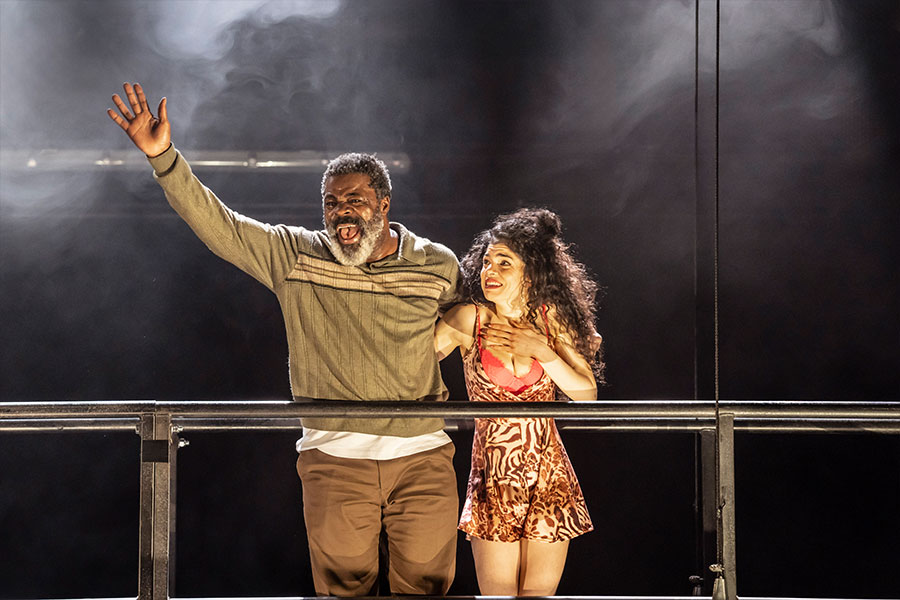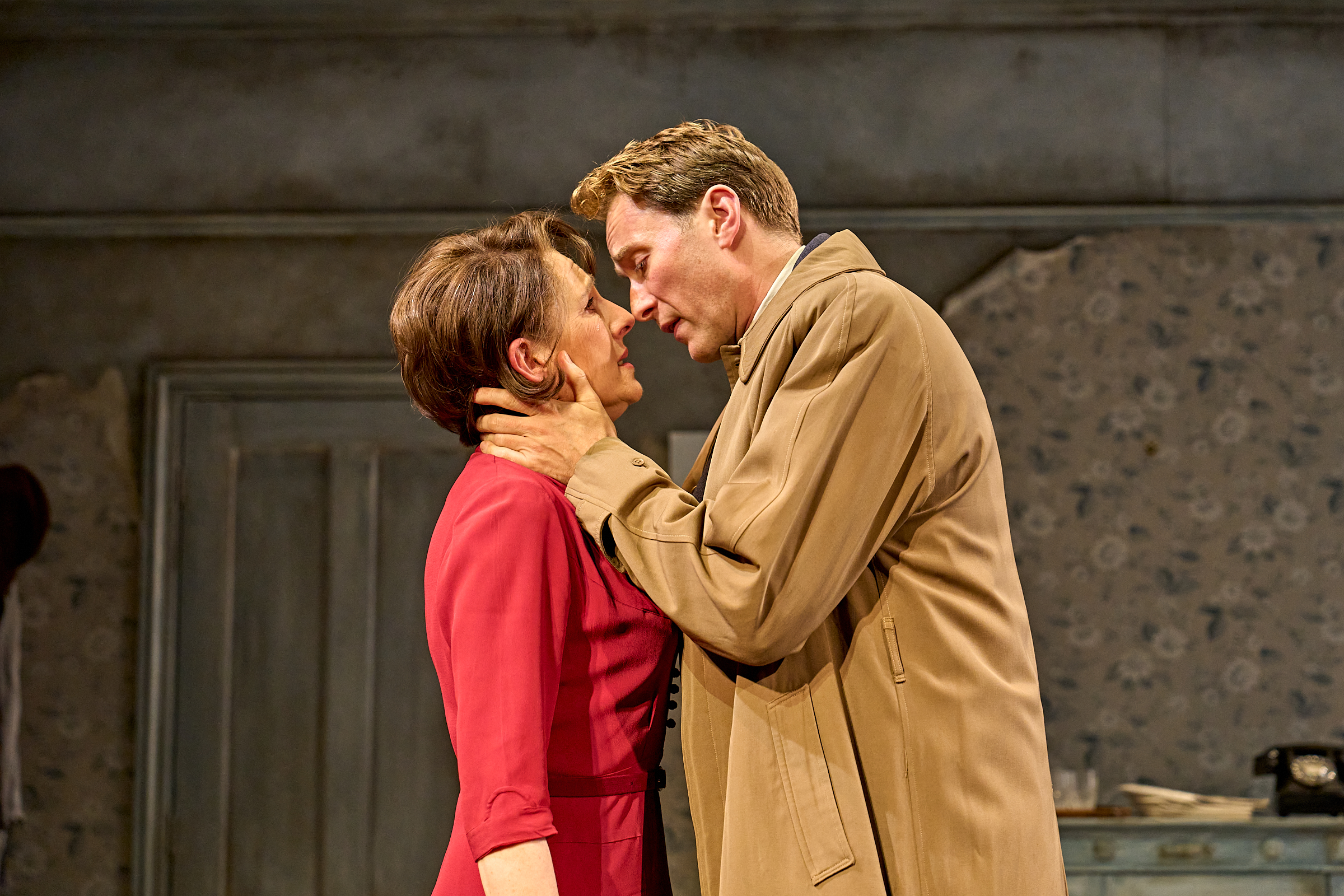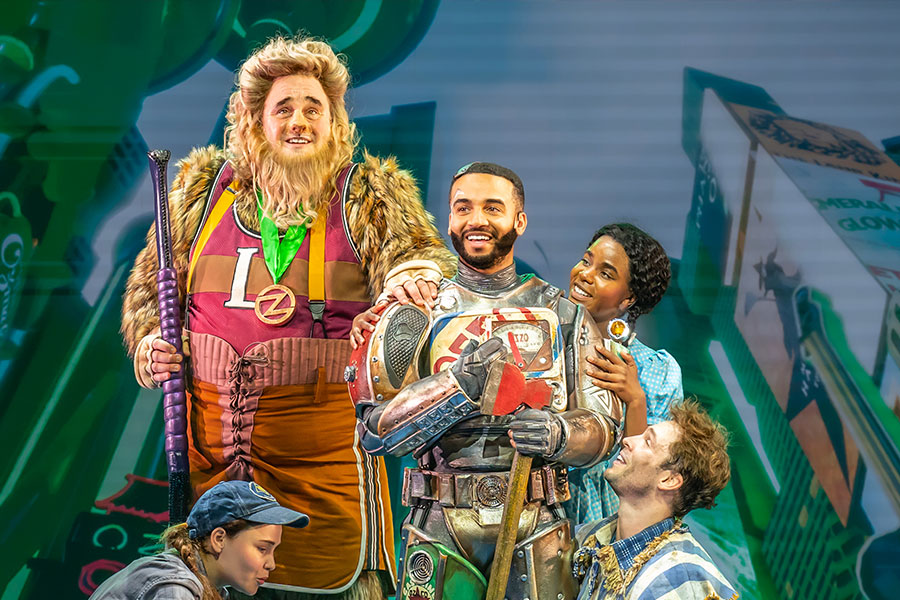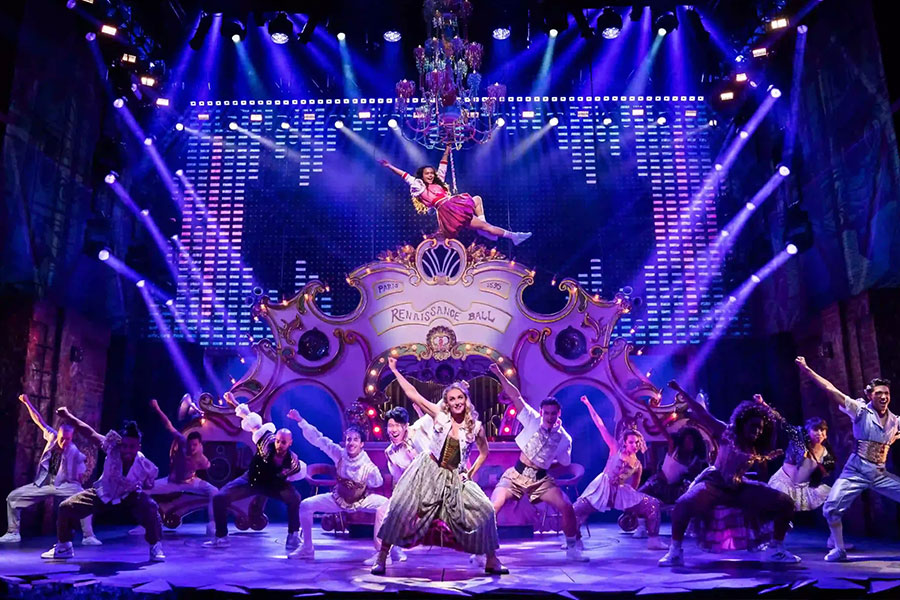Did the stars align for Ralph Fiennes and Sophie Okonedo in Antony and Cleopatra?
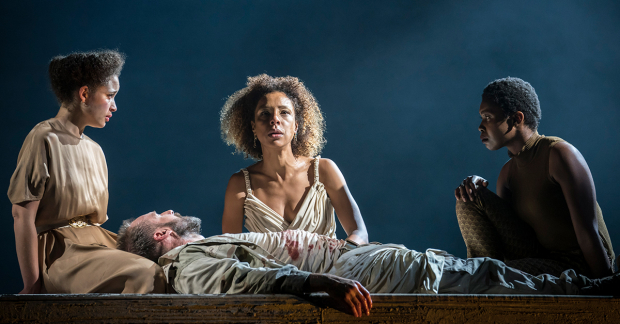
© Johan Persson
Sarah Crompton, WhatsOnStage
★★★★★
"Antony and Cleopatra isn't an easy play. It's long, it spans a love affair and a civil war, and its two protagonists who are meant to be so in love they are willing to give up the world for each other, spend most of its duration quarrelling. It also contains some of the most sublime poetry in Shakespeare and two epic tragic parts."
"Most Antonys shout; Fiennes doesn't, finding in the language instead a sort of harried sorrow, a constant searching that makes sense both of the constant descriptions of the man's nobility but also of the strangely botched, half-comic nature of his tragedy. Okonedo's Cleopatra has the same wounded humanity.
"As she runs through moods, capricious, powerful and positively bitchy by turn, she is like an imperious soul queen, completely in command of her material, and unlike Antony, happy in her own skin. It is a performance of immense detail and subtlety, vocally enticing but also physically strong."
"As this fine, confident production shows, this is an endlessly relevant play about an entire world – but also about two people who are fighting their own mortality and trying to love one another."
Ann Treneman, The Times
★★★★★
"The stage at the Olivier is huge but this production of Shakespeare's great tragedy is as big as it and as spectacular. The entire endeavour shines but it is the couple at its heart that makes the play live or die and Ralph Fiennes and Sophie Okonedo are simply terrific as the lovers who tempt fate one too many times."
"The set, by Hildegard Bechtler, is intricate and immense. In Egypt, there are glimmering pools and archways. In Italy, the war command room is a marble palace with a huge screen split into battle scenes. When our battle ship arrives, it looms up before us, a behemoth of steel. When at sea, the waves engulf us. The words are crystal clear and Godwin has created some immaculate and finely detailed set piece scenes. The drunken ship party is rip-roaring and the battles feel real: flashes of light, pounding music, haze hanging."
Sam Marlowe, The Stage
★★★★
"It's all very involving, even if the pace rather slackens just as the military action hots up. There's strong support from Nicholas Le Prevost as a world-weary Lepidus, Tunji Kasim's sinewy, watchful Caesar and Sargon Yelda's flamboyant Pompey, with Fisayo Akinade scene-stealingly affecting as an ill-fated messenger. But it's the lovers who enthral.
"Okonedo is magnificent, a kitten one moment, a tigress the next, sensual, witty and ferocious. Fiennes' Antony, at his booziest and most raddled, growls "Come on, my queen, there's sap in't yet", his eyes somewhat unfocused but still roguish. The grotesque farce of their final moments is horribly sad (and, incidentally, features a very impressive, very real live snake)."
Andrzej Lukowski, Time Out
★★★★
"Godwin's Antony and Cleopatra is not particularly revelatory. And the ending is a slight let down – a few too many jokes amidst the tragedy, and the deployment of an actual snake is pretty distracting (I'm pretty sure it wasn't actually an asp but some sort of new world snake – perhaps that's part of the modern dress!). But it is, above all, very entertaining: slick, stylish and action packed, with a proper marquee performance from Okonedo.
"There will always be cooler directors than Simon Godwin: and most of them would have a nervous breakdown tackling Antony and Cleopatra. This is a rollicking send off."
Dominic Cavendish, The Telegraph
★★★★
"Fiennes – bearded, and initially in a white-flared rig-out that gives flashes of belly – doesn't fully convince as having let his hair down away from the cares of the Roman state. Is there a touch of the middle-manager in his down-beat delivery? I yearned for a bit more va-va-voom from the actor who gave us Voldemort."
"In a pungent orange light, the melancholy of Okonedo's bereft queen – finally doing the deed with a real-life milk snake – washes the auditorium. The supporting performances – satisfactory across the board – shift into realms of excellence: Katy Stephens' Agrippa, Tim McMullan's Enobarbus and Gloria Obianyo's Charmian. It's a long evening but an increasingly rewarding one, which needs only fine-tuning from Fiennes to become perhaps a great one."
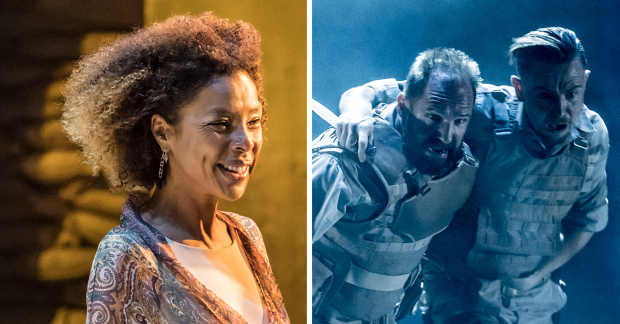
© Johan Persson
Henry Hitchings. Evening Standard
★★★★
"Although the epic scale remains — it's three and a half hours long — director Simon Godwin picks a nimble path through the thorny plot and gives a nice contemporary twist to its story of East-meets-West."
"Fiennes nails the overemphatic masculinity of a man hoping to prove he's not past his prime, and is at his best when straddling the boundary between being amusingly suave and uncomfortably louche."
"Godwin's modern-dress production, lavishly designed by Hildegard Bechtler, makes smart use of the National Theatre's largest space. There's a strong supporting cast, too, with Tim McMullan a fruity yet jaded Enobarbus, Katy Stephens a smugly efficient Agrippa and Fisayo Akinade adding some deliciously understated humour as Antony's attendant Eros."
Michael Billington, The Guardian
★★★★
"I will state my reservations quickly. This is a play of 42 scenes, and the determination to give each its separate identity means you lose some of the play's swift cinematic rhythm. Hildegard Bechtler's inventive design heightens the distinction between Egypt and Rome: the former all tessellated opulence and sunken pools, the latter a military war-room with the latest satellite technology.
"The use of a revolve, however, slows the action and means that the evening runs for three and a half hours. One consequence is that, by the time we get to the adagio of Cleopatra's end, exhaustion is setting in."
"But I've no wish to carp when so much is first-rate. Above all, Godwin and his two stars remind us that the lovers exist in a state of intoxicated fantasy: their opening exchanges, in their mix of lust and asperity, remind us of the warring Elyot and Amanda in Coward's Private Lives. Fiennes especially, swathed in baggy Oriental pants, looks as if he can't wait to get back into uniform."




